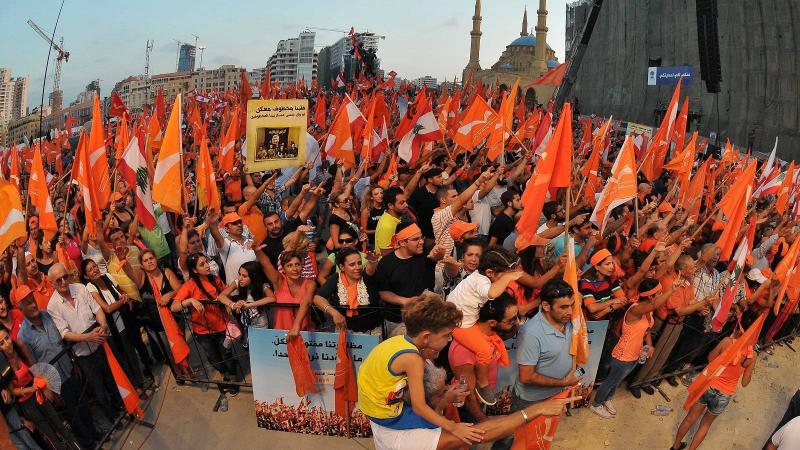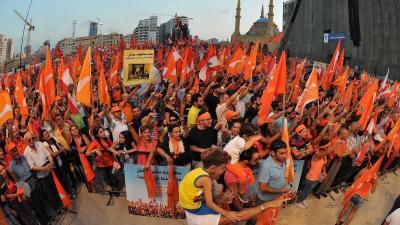With the relative calm in the confrontations of the "Support Front" in the south, which occasionally faces "friendly fire" from the Free Patriotic Movement (FPM), opposing the strategy of linking the conflict to the events in Gaza, one can consider the last week of February, despite its shortness, to have felt long and heavy on all levels. This was marked by the return of the Cabinet to session, during which the draft budget was subjected to constitutional, economic, and logistical punches (including demands from local leaders to reconsider fees for civil registry documents, marriage and birth certificates, and others), and intense disputes over what could be offered to retirees who oppose government's intentions to activate the administration, schools, universities, and judiciary through financial incentives—without impacting the stalemate in solutions, practical life, and the cycle of work and production.
Political circles noted that the harmony in the position of President Michel Aoun and FPM leader MP Gebran Bassil regarding the linking of fronts and the clear objection to dragging Lebanon into war raises questions about the purpose of expressing this position at this time. They also mentioned discussions about consecutive election sessions, giving the impression that the FPM had moved to the other side. However, the question remains whether the decision to separate from Hezbollah has been made, as these circles urged waiting for the reactions of political players to this position.
Sources told "Al-Liwaa" that a program has been prepared for the visit schedule of the ambassadors of the Quintet Committee to political leaders ahead of the initiative concerning the presidential election, which is central to the mission of the French presidential envoy Jean-Yves Le Drian in Beirut. They announced that no names are being circulated but emphasized that Le Drian would work on outlining broad lines or principles related to the electoral process as a first phase.
At the Pine Palace, the presidential file was on the table, as ambassadors of the international Quintet Committee held a meeting at the Pine Palace at the invitation of Ambassador Herve Magro, which concluded away from the media. Concerns about regional escalation were present during the call made by French President Emmanuel Macron to Egyptian President Abdel Fattah el-Sisi, during which he emphasized "the necessity of making efforts to avoid escalation and the ignition of the region, especially in Lebanon and the Red Sea, where the risks of escalation are present."
From the embassy in Beirut, French Ambassador Herve Magro stated that his country is making efforts to reduce tensions, expressing hope for progress. The ambassadors agreed during the meeting, which lasted over an hour, to continue their rounds with Lebanese leaders to reach an understanding on the mechanism of the presidential path before Le Drian returns to Beirut.
Diplomatic information leaked regarding the Quintet ambassadors' meeting last night at the French Embassy in Beirut indicated that the attendees reviewed the outcomes of the committee's initial meeting and its discussions with Parliament Speaker Nabih Berri, as well as the reasons for not continuing rounds with key political officials. The sources noted that there was an exchange of views, and a review of the actions taken by members abroad, particularly with concerned countries, was conducted, emphasizing the need for results to facilitate the election of a president.
They pointed out the divergence among the ambassadors of the committee, which did not last more than three-quarters of an hour, regarding the halt of their rounds with other officials, after it became apparent that some of its members cannot visit Hezbollah, for example, while the mission requires their collective presence. The sources revealed that they discussed the timing of a conference dedicated to supporting the army and other security forces, which was initially set to be held in the French capital but was postponed pending further consultation.




